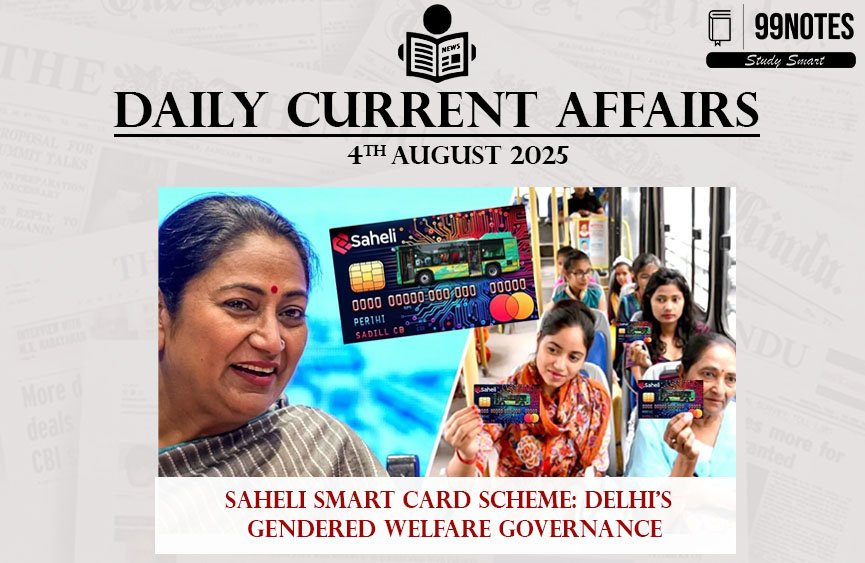4 August 2025 : Daily Current Affairs
1. India-UK FTA and Voluntary Licensing: A Blow to Digital Sovereignty?
Source: Page 6 , The Hindu UPSC IAS Edition
| Topic: GS-2 (International Relations, Bilateral Agreements); GS Paper 3 (Science and Technology, IPR) |
| Context |
|
Content
-
Background:
-
India and UK concluded FTA in 2025 after 14 rounds of negotiations.
-
Concerns are raised over the digital and IPR chapters, especially regarding TRIPS-plus provisions.
-
-
Key Issues Raised:
-
Digital Sovereignty:
-
Restrictions on data localization undermine India’s strategic autonomy.
-
India may be forced to allow free flow of data to foreign jurisdictions.
-
-
Voluntary Licensing & Public Health:
-
FTA clauses may restrict India’s ability to issue compulsory licenses or adopt public health-friendly IPR policies.
-
Threat to Indian generics and public access to affordable medicines.
-
-
-
Implications:
-
Undermines India’s digital public infrastructure (like UPI, ONDC).
-
Hampers India’s role as the “pharmacy of the world”.
-
-
Conclusion/Way Forward:
-
India should maintain policy space to balance trade liberalization with national interest.
-
Need for a parliamentary oversight mechanism for trade treaties.
-
Practice Question:
|
“The digital trade and intellectual property chapters of recent FTAs pose challenges to India’s autonomy in health and technology. Critically analyze in the context of the India-UK Free Trade Agreement.“ (250 words / 15 marks) |
2. Delhi Assembly Goes Green: Solar Power Push
Source: page 1, The Hindu UPSC IAS Edition
| Topic: GS-3 (Environment; Infrastructure – Renewable Energy) |
| Context |
|
Analysis from UPSC Angle:
-
Key Features:
-
Delhi Vidhan Sabha now 100% solar-powered with rooftop and grid-tied panels.
-
Expected to save ₹15–18 lakh annually on electricity.
-
-
Significance:
-
Role model for other institutions to adopt clean energy.
-
Supports India’s renewable energy targets under NDCs.
-
-
Challenges:
-
Urban solar adoption hindered by lack of space and financing.
-
Net metering and regulatory issues.
-
-
Way Forward:
-
Incentivize solar in all government buildings.
-
Promote battery storage integration and urban energy efficiency.
-
Practice Question:
|
“Discuss the role of solar energy in India’s sustainable urban governance with examples from recent initiatives.” (250 words / 15 marks) |
3. Saheli Smart Card Scheme: Delhi’s Gendered Welfare Governance
Source: Page 2, Indian Express Delhi Edition
| Topic: GS-2 (Governance; Women and Welfare Schemes) |
| Context |
|
Key Points for UPSC:
-
About the Scheme:
-
Smart card for all women aged 18+, covering reproductive health, cancer screening, and wellness checkups.
-
Aadhaar-linked database for targeted outreach.
-
-
Significance:
-
Gender-specific delivery of public services.
-
Enhances access and dignity in health systems.
-
-
Concerns:
-
Data privacy and digital exclusion risks.
-
Effectiveness depends on backend healthcare infrastructure.
-
-
Way Forward:
-
Need for convergence with existing schemes (like Janani Suraksha Yojana, PMJAY).
-
Public sensitization and grievance redressal.
-
Practice Question:
|
“Evaluate the potential of smart card-based welfare schemes in improving women’s health outcomes in India.” (150 words / 10 marks) |
Check more: 4 August 2025 : Daily Current Affairs




